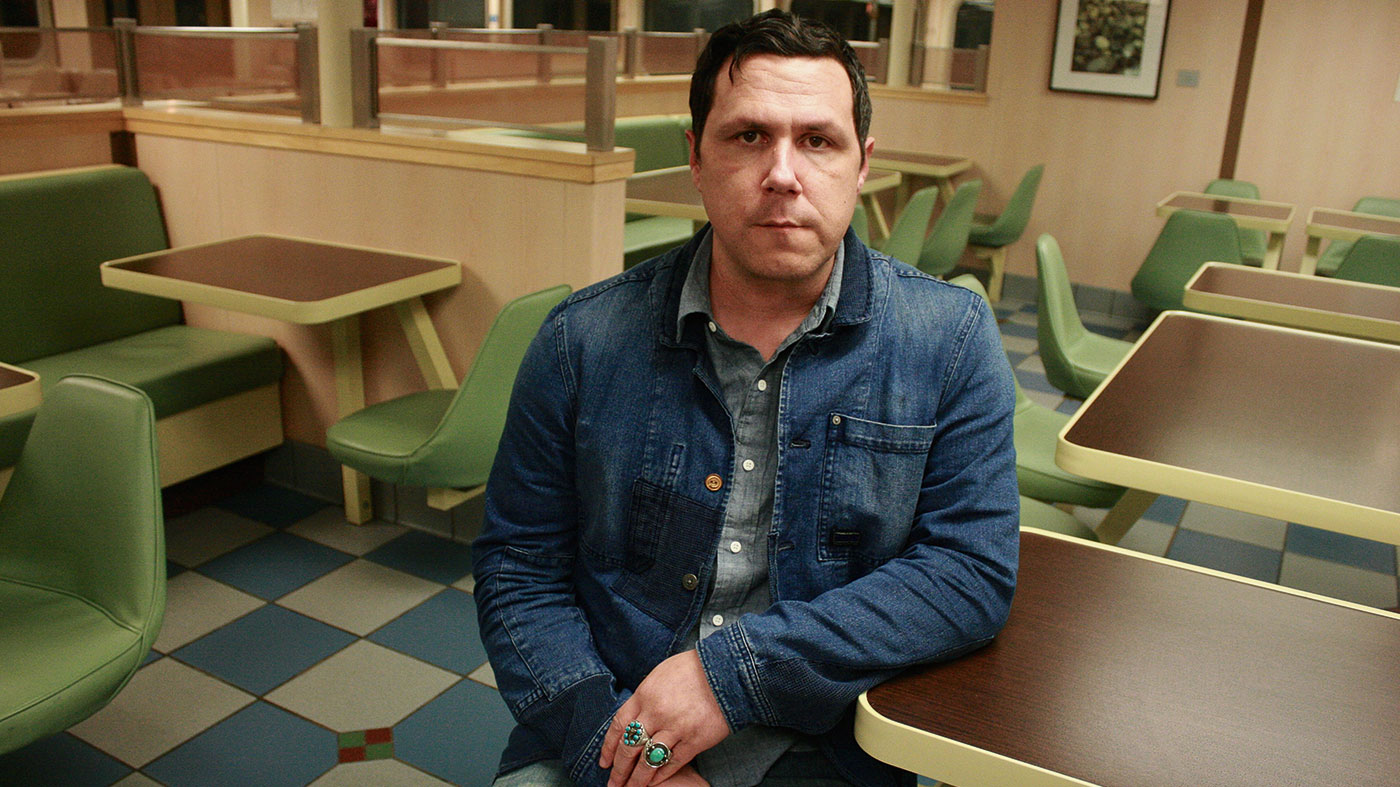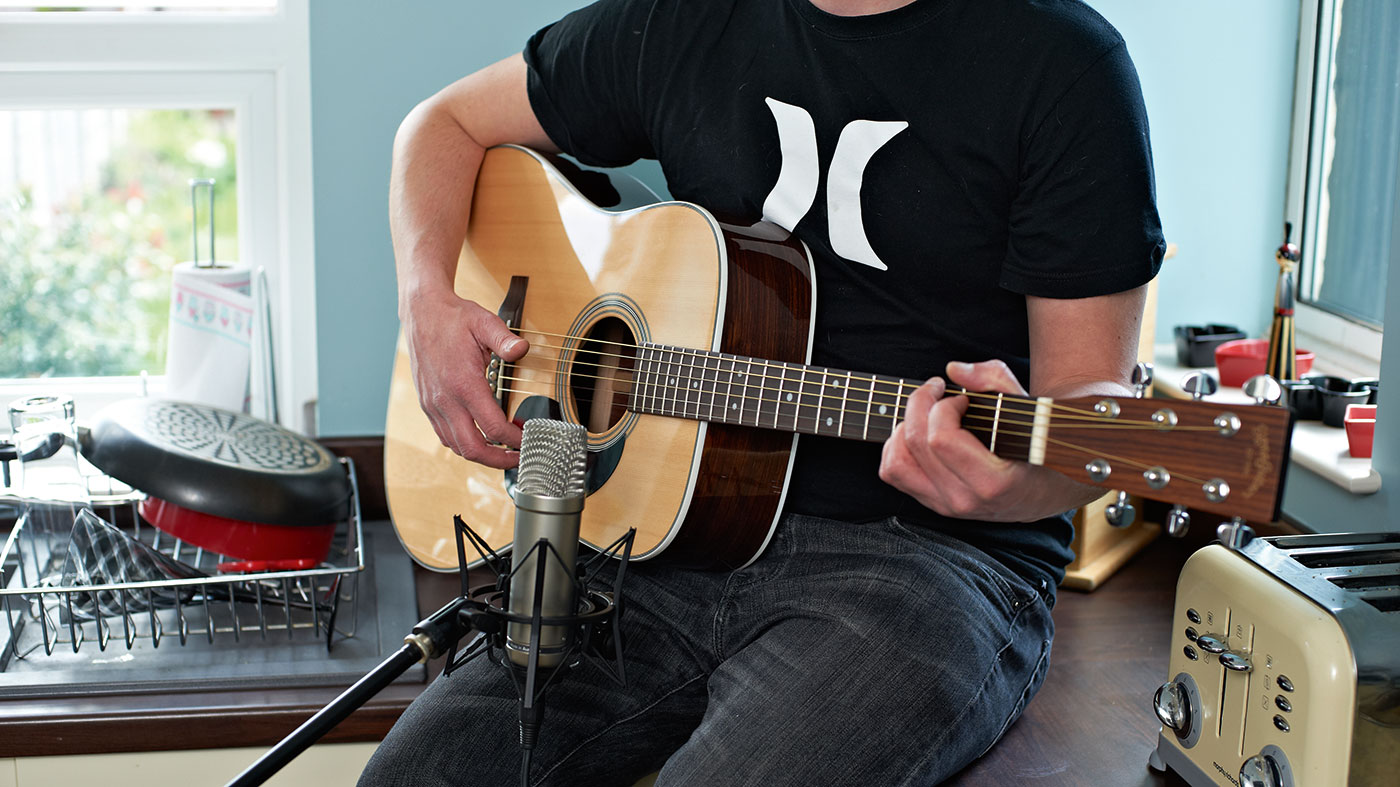Damien Jurado: “I’m never online, so that to me is a really big influence on my writing. It keeps you in your own lane”
The life, lyrics and £80 acoustic that made The Horizon Just Laughed

On his 14th album, The Horizon Just Laughed, the idiosyncratic Seattle songwriter Damien Jurado presents personal upheaval in a misleadingly laid-back package.
“The horizon is in a lot of my work,” Seattle-raised singer-songwriter Damian Jurado tells us, referencing the title of his latest record The Horizon Just Laughed. “Washingtonians came west from the east. They didn’t know how long it went. They had no maps. The settlers who came to the West Coast were the real dreamers: wherever they were was not good enough for them. It says something about the people that settled here.”
There’s something of this in Jurado, for sure. The songwriter started off playing a borrowed Gibson SG bass in punk bands, but morphed into a critically-lauded urban folk singer-songwriter after discovering Billy Bragg – “my bridge” – in the early 90s. Since then he has ceaselessly chased his muse across 14 solo albums, 15+ EPs and approximately 25 years of music-making, rarely seeming to care, or even notice, whether he is in or out of favour.
Finding a lane
My playing is very percussive and a lot of that goes back to those Leadbelly records
“I have pretty bad dyslexia, so I don’t read, ever,” he says. “It’s good and bad. I’m never on email. I stay away from books as much as possible. I don’t watch modern TV. I don’t watch the news. I have no idea what the fuck’s going on in the world half the time and I’m never online, so that to me is a really big influence on my writing. It keeps you in your own lane. Your own world.”
This world is instead populated with stories, American archetypes and poignant observations of his characters’ personal tragedies and victories, played out in macroscopic view. His playing is a deceptively complex, crystalline network of rhythmic and dynamic nuance developed across countless support slots with noisier compadres in 90s Seattle’s buzzing alternative rock scene with the aim of maximising contrast.
“Leadbelly really spoke to me,” says Jurado of his first acoustic hero. “He was a really rhythmic player. My playing is very percussive and a lot of that goes back to those records. I didn’t care much for lead playing. I had no interest in learning scales or any of that other garbage, but there’s a lot of great rhythm guitar players in the genre of blues music.”
You’ll hear few blues cliches in Jurado’s writing, but there is a kindred spirit in the chunky, self-taught playing style, where ‘incorrect’ technique has evolved into a rich, characterful sound.
Want all the hottest music and gear news, reviews, deals, features and more, direct to your inbox? Sign up here.
Muted melodies
“Besides the rhythm, muting is a big part of what I’m doing,” explains Jurado. “I’m doing a lot of palm muting on my right, while at the same time, using just my thumb and my pointer finger, I’m sort of plucking and dragging my thumb and index finger across the strings. You’re strumming with your thumb but you’re picking with your index and it creates this weird illusion, like I’m playing with more than two fingers.
I use the callouses of my fingers to pick up that string and sort of pluck it on the neck
“Then, with my left hand, I do a lot of bending and I use the callouses of my fingers to pick up that string and sort of pluck it on the neck. That happens a lot in my songs.”
Listen to the likes of Dear Thomas Wolfe from the new album and you’ll these hear muted strums form percussive punctuations, and his trademark slurred picking style at work – all recorded in intimate intricacy with two vintage Neumann U87 microphones and one acoustic.
“The nylon-string I’m playing, we picked up in 2016 in London,” says Jurado. “It’s one of those things you’d bring to the beach. It cost £80, and that’s what you’re hearing on this album. I brought it home with me, so my kids could play around with it and there I was, writing songs. I decided, ‘Well, since I wrote the songs on it and I love the sound of it, I’m going to record the album on it.’ Which kind of mortified my engineer!”
It’s a surprise, but then throughout our conversation, we are wrong-footed repeatedly. Dear Thomas Wolfe is inspired, not by the late author, but by, er, Chevy Chase. And his response to live mic feedback? Remove the monitors. The new record is not a contented, dewy-eyed ode to Washington state, but about upheaval (“When I’m talking about, ‘Carry me over rainbows and Rainier’,” he reveals. “I’m talking about getting the fuck out of there…”).
Seemingly, Jurado’s only constant is a drive to move on, but maybe that can change, too.
“Explorers used to think that the horizon is the end, where you fall off,” says Jurado. “The reality is that you just keep chasing... I think it’s going to end, but it doesn’t.”

Unmonitored
Damien’s take on live acoustic tone
“Because of how I play, bottom-end is really important for me,” says Damien. “I play thick strings, too, which adds to it.” So how does he combat the horribly tinny, plugged-in sound that so often plagues live acoustic players?
“Well, what I find works best is a microphone and DI split,” reveals Damien. “A lot of sound guys will not do this but the point is that the DI is only there to give you maybe 25 percent of that sound. The rest should be coming from the microphone. Sound guys are afraid of feedback, but with me you’re not going to get feedback because I don’t use monitors. So I like a combination of the two. And I hate monitors!”
The Horizon Just Laughed is out now on Secretly Canadian.
Matt is a freelance journalist who has spent the last decade interviewing musicians for the likes of Total Guitar, Guitarist, Guitar World, MusicRadar, NME.com, DJ Mag and Electronic Sound. In 2020, he launched CreativeMoney.co.uk, which aims to share the ideas that make creative lifestyles more sustainable. He plays guitar, but should not be allowed near your delay pedals.


